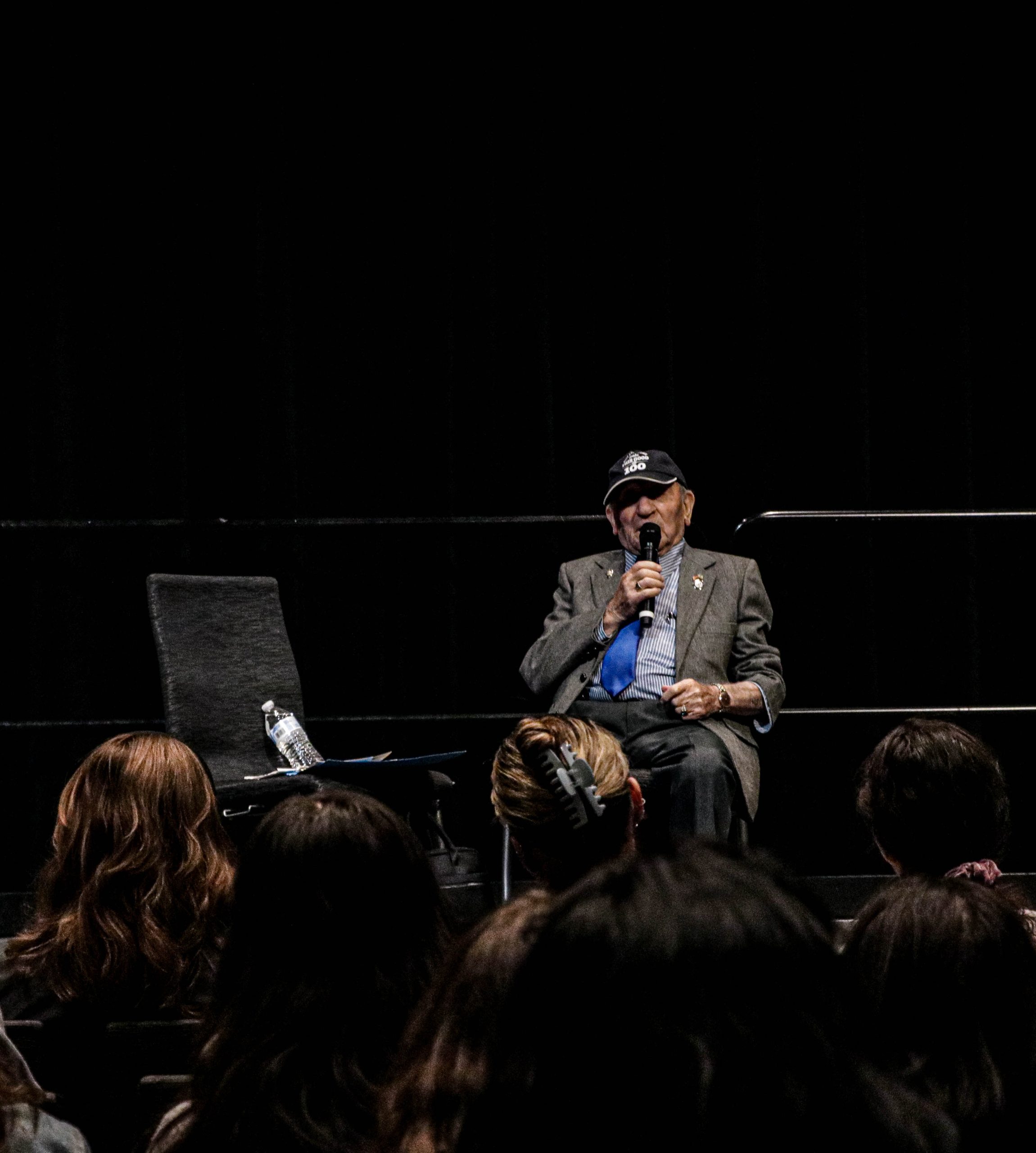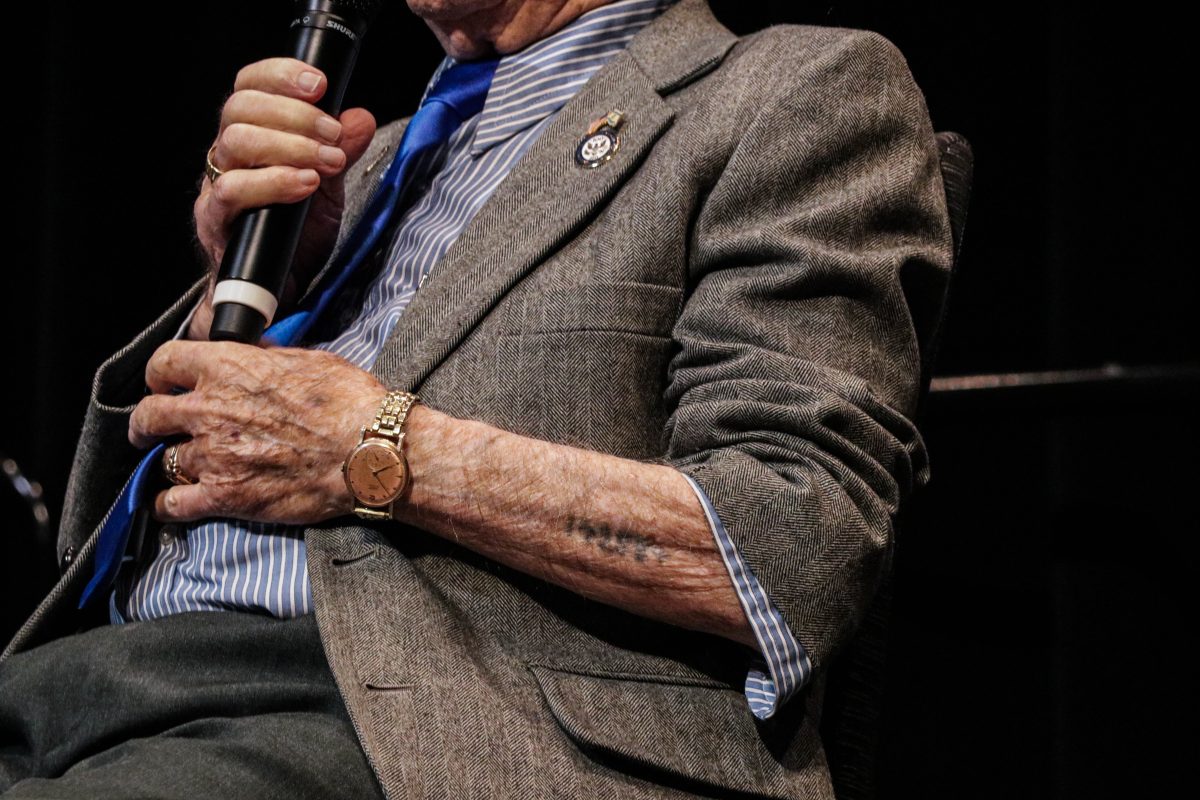When Joseph Alexander was just 16 years old, he and his family were forced to leave their home in Kowal, Poland. The year was 1939 and Nazi Germany had just invaded the area.
Alexander’s entire family was killed, leaving him as the only survivor. But Alexander said that he remained hopeful, all throughout the war.
His mission now is to spread the word and tell his story.
“I came back because I survived. Hitler didn’t,” Alexander said.
The 100-year-old holocaust survivor visited CSUN’s Northridge Center during the “Never Again” event, hosted by Chabad at CSUN on Nov. 28, and talked about his experience in Nazi Germany during WWII.
Alexander survived 12 concentration camps, including Dachau and Auschwitz, before being liberated in 1945 and moving to America in 1949.
According to Alexander, it wasn’t until 1997 when he began speaking to students about his experiences. He said he felt it was important to share his story to combat Holocaust deniers and those who might not be familiar with its history.
“I talk with hundreds of thousands of high school students, and I was told that 70% of those students have never heard about the Holocaust, so they’re the most important ones to talk to,” Alexander said.
According to a poll conducted by Pew Research, about 57% of teens aged 13-17 years old said that they knew approximately when the Holocaust had occurred. However, only 38% knew that 6 million Jews were killed in the Holocaust.
During the panel, Alexander had shown a variety of photos he kept with him of other Holocaust survivors, which included author Elie Wiesel. Alexander also held up photos of what some of the Nazi-created ghettos looked like, to give attendees a look at the conditions he survived under.
Alexander said that he felt it was God and his faith that had kept him going during that difficult time.
Chabad at CSUN Board President Madison Attarchi said that she felt like it was crucial to help organize for Alexander to come speak with students about his personal journey due to the rise in antisemitism on campus.
“With everything that’s going on right now in Israel, I think it was definitely a very important [event] to be posting about and to get people to come,” Attarchi said.
According to a report from the Anti Defamation League (ADL), only a third (31.9%) of Jewish students on college campuses said they felt comfortable speaking out about college antisemitism.
CSUN Chabad Program Director Sandra Paul shared similar sentiments as Attarchi, and said that holding these sorts of events and spreading stories like Alexander’s serves as a cautionary tale to ensure that something like the Holocaust is not repeated.
“This is the last generation that we’re actually going to hear firsthand accounts of survivors,” Paul said. “I think now because of what’s happening in Israel, I think we definitely feel like it’s even more important because even though we say ‘never again,’ it has happened on Oct. 7. We have to make sure that it actually, really never happens again.”
Paul also said that hearing Alexander’s story of resilience face to face felt impactful and moving.
“If someone even survived just one camp, that’s a miracle. But here, he survived 12 camps. To hear it firsthand, and he has documentation, it just puts it in your face like ‘wow, this was real.’ It’s not just something you see on social media,” Paul said.







